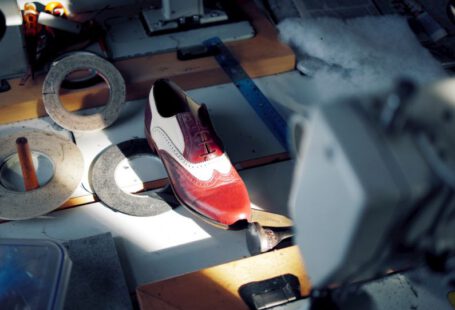Shoe production is a massive industry that often comes under scrutiny for its environmental impact. From the materials used to the manufacturing processes involved, the shoe industry has a significant carbon footprint. However, in recent years, there has been a surge in the adoption of sustainable practices in shoe production. Brands are increasingly recognizing the importance of reducing their environmental impact and are implementing innovative strategies to create more eco-friendly footwear.
Materials
One of the key areas where sustainable practices are making a difference in shoe production is in the choice of materials. Traditionally, shoes have been made from materials like leather, rubber, and synthetic fabrics, all of which have significant environmental consequences. However, many brands are now turning to sustainable alternatives such as organic cotton, recycled polyester, and plant-based materials like pineapple leather. These materials not only reduce the carbon footprint of shoe production but also help to minimize waste and promote a circular economy.
Manufacturing Processes
In addition to using sustainable materials, shoe manufacturers are also focusing on improving their manufacturing processes to reduce their environmental impact. One way this is being achieved is through the adoption of energy-efficient technologies and practices. By investing in renewable energy sources like solar power and implementing water recycling systems, shoe factories are able to significantly reduce their energy consumption and water usage. This not only benefits the environment but also helps to lower production costs in the long run.
Supply Chain Transparency
Another important aspect of sustainable shoe production is ensuring transparency throughout the supply chain. Brands are increasingly taking steps to trace the origins of their materials and ensure that they are sourced ethically and sustainably. This involves working closely with suppliers to monitor and improve working conditions, as well as implementing fair trade practices to support local communities. By being transparent about their sourcing practices, shoe brands can build trust with consumers and demonstrate their commitment to sustainability.
Circular Economy
The concept of a circular economy is gaining traction in the shoe industry, with many brands looking for ways to minimize waste and maximize resource efficiency. This involves designing shoes that are durable, repairable, and recyclable, so that they can be used for longer periods of time and ultimately recycled at the end of their life cycle. By embracing the principles of a circular economy, shoe manufacturers can reduce their environmental impact and contribute to a more sustainable future.
Collaborations and Innovations
Collaborations between shoe brands and environmental organizations are also driving sustainable practices in shoe production. By working together, companies can share knowledge and resources to develop innovative solutions that benefit both the environment and the industry as a whole. For example, some brands are partnering with recycling companies to create shoes made from recycled materials, while others are experimenting with new technologies like 3D printing to reduce waste and improve production efficiency.
The Future of Sustainable Shoe Production
As consumer awareness of environmental issues continues to grow, the demand for sustainable footwear is only expected to increase. Brands that prioritize sustainability in their production processes are likely to gain a competitive edge in the market and attract a wider customer base. By embracing sustainable practices in materials sourcing, manufacturing processes, supply chain transparency, and circular economy initiatives, shoe brands can not only reduce their environmental impact but also set a positive example for the industry as a whole.





